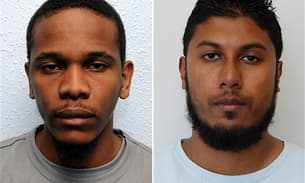
Theresa May overruled security services in citizenship-stripping case
The Home Secretary removed Y1’s citizenship after discussions with ‘senior Cabinet colleagues’
The Home Secretary, Theresa May, rejected the advice of the Security Service when she revoked the British citizenship of an Afghan-born man, the Special Immigration Appeals Commission has found.
The man, known as Y1 in court proceedings, was a dual Afghan-British citizen who was captured, with his wife, by UK troops in Herat, on the border between Afghanistan and Iran, in July 2011. Just before his release, May issued an order removing his British citizenship.
The order followed much discussion between the Home Secretary and the security services about what to do with him. While the British security services believed there was a strong enough case to remove Y1’s UK citizenship, they told the Home Secretary there would be more ways to manage him and limit any risk he posed if he was allowed back to the UK. On these grounds they advised against the removal of his citizenship.
May considered this opinion and conferred with ‘senior Cabinet colleagues’. She then ‘rejected’ the advice of the security services and withdrew Y1’s UK citizenship. She also issued an exclusion order preventing him from entering the UK.
This is the first time, so far as is publicly known, that the Home Secretary has overruled the views of the security services to remove the nationality of a British citizen.
Related story – Former British citizens killed by drone strikes after passports revoked
Yesterday the Special Immigration Appeals Commission (Siac), a tribunal that is able to hear secret evidence, upheld May’s decision to remove Y1’s citizenship.
In his written judgment, Lord Justice Irwin noted: ‘Ultimately, the Home Secretary rejected the advice of the Security Service on the “management” issue.’ But he added: ‘the Secretary of State was fully justified in concluding that the appellant represented a danger to national security.’
– Ian Macdonald QC
A Home Office spokeswoman told the Bureau: ‘We are determined to detect and disrupt all terrorist threats and take action against those we believe pose a national security risk.
‘We are pleased the Court found the Home Secretary was ‘fully justified’ in her assessment of the threat posed by this dangerous individual, and that it was proportionate to pursue deprivation action.
‘Citizenship is a privilege, not a right, and the Home Secretary will remove British citizenship from individuals where she feels it is conducive to the public good to do so.’
Ian Macdonald QC, former president of the Immigration Law Practitioners’ Association, told the Bureau: ‘It’s very odd for the Home Secretary to simply not follow security service advice she’s given, but it’s a political decision she’s entitled to make. She’s a political person with executive powers, and she’s exercised those executive powers.’
Y1 is one of a swelling number of individuals who have lost their British nationality, usually on national-security grounds, under little-known and arbitrary powers introduced by the Labour government in 2003 as an amendment to the British Nationality Act 1981. Since coming to power, the Coalition has issued deprivation of citizenship orders against at least 21 individuals. This is a dramatic escalation in how the secretive powers are used. Under Labour the power was used five times in seven years.
Related story – Graphic detail: How UK has used its powers of banishment
On Tuesday reports in the Times and Financial Times claimed that May is planning to expand her powers to remove the citizenship of any individual suspected of planning terrorist attacks. Under current legislation she can only remove citizenship from dual nationals.
According to the reports, May wants to amend the British Nationality Act 1981 to allow her to deprive British citizenship even if it will make an individual stateless – something which is currently illegal. The Bureau understands the reports may reflect current Home Office plans.
Last month the Supreme Court ruled that a citizenship-stripping order against a former Iraq detainee, Hilal al-Jedda, had illegally made him stateless.
Y1: Allegations of extremism
The Home Office claimed Y1 had travelled to Pakistan’s tribal regions to attend a training camp and had planned to fight British and US troops in Afghanistan.
He was accused of involvement with banned extremist group Al Muhajiroun in the UK and of belonging to ‘a network of extremists’, some of whom have since been jailed.
Following their arrest, Y1 and his wife were held for a month and questioned by intelligence officers. Intensive high-level discussions took place over what to do with the couple.
The security services found there was a strong enough case to remove Y1’s citizenship, but advocated allowing him to return to the UK and monitoring him there, senior Home Office official Graham Zebedee told Siac during hearings in July.
‘The security service judgement in this instance is clear: they thought there were a greater variety of options for the management of risk if the individual was in the UK,’ he said. Zebedee added that security services ‘believed that his detention had reduced the immediate risk he posed’. Despite this, Zebedee revealed, after discussions with ‘senior cabinet colleagues’ May decided to strip Y1 of his British nationality.
Related story – Supreme Court rules citizenship-stripping order was illegal
The security services’ preference for bringing Y1 to the UK and monitoring him presented them with a particular challenge. As he also held Afghan citizenship he could not be extradited to the UK under Afghan law, so would have had to be persuaded to return voluntarily. Earlier this year Imran Mahmood, an acquaintance of Y1’s who had also undertaken training in Pakistan and had returned to the UK of his own accord, was jailed for planning terror attacks.
Another option was to hand him over into Afghan custody, but a Ministry of Defence spokesman told the Bureau that this would only be used in cases where it was believed the Afghan government could charge him with a crime.
Instead, within four weeks of his arrest, Y1 lost his British citizenship and was released and is now in Kenya. The government also looked at whether it could remove his Kenyan-born wife’s nationality, although it decided that this was not possible. In the end it took no action against her.
Y1 appealed against the loss of his nationality at Siac. His lawyers told the court that May’s order was disproportionate and there was no evidence Y1 had any intention of carrying out terrorist acts in the UK. He added that in the two years since losing his citizenship, there was no evidence of Y1 attempting to attack Coalition forces in Afghanistan, as the Home Secretary claimed he had intended.
Instead, after first losing his British passport he went into hiding for several months, telling his lawyers he feared he would be targeted by a US or UK drone strike now that he was no longer entitled to all the protections that British nationality would offer. He travelled to Saudi Arabia and then to Kenya, where he is living on a temporary visa with his wife’s family.
Secret hearings
About half of Y1’s four-day Siac hearing took place in closed court, with even his lawyers excluded from proceedings. Much of the detail of the allegations against Y1 is considered secret – a security service representative, giving evidence from behind a curtain, said he could not even state in open court whether Y1 was judged to be a senior operative or not.
Speaking by video link from Nairobi, Y1 claimed he had gone to northwest Pakistan seeking a strict Islamic lifestyle and the chance to live under sharia law.
‘That’s a view that might be characterised as extreme or bizarre or wrongheaded, but it’s a decision a British citizen is entitled to make,’ his barrister David Gottlieb told the tribunal.
Y1 claimed that others warned him the region was full of militant groups and so violent that he should attend ‘survival training’. He claimed that for ‘three or four weeks’ he attended a camp that consisted mainly of fitness and weapons maintenance training, although he denied ever firing a gun. He soon quit the training course after being put off by infighting among its ‘leaders’ and settled in Miranshah, North Waziristan, where he built a house. His lawyers argued that these were hardly the acts of a committed jihadi.
But the appeal of life in Waziristan soon wore off, he told the tribunal: the entire adventure had been ‘a waste of time’. Rumours that the Pakistani army was planning to march into Waziristan to clear out militants were another reason he gave for leaving Pakistan. Y1 and his wife crossed back into Afghanistan and were arrested within a week.
Lord Justice Irwin found Y1’s account ‘deliberately deceptive’, adding that it ‘lacks credibility in all its major points’. He added that material heard in closed proceedings offered “absolutely conclusive evidence of the appellant’s desire to engage in terrorist activity and very strong evidence of an enduring commitment to Jihadist ideas.”
Y1’s solicitor Rizvan Mussa, of HMA Solicitors, told the Bureau: ‘Our client is very disappointed with the outcome, especially as it transpired at a very late stage in the proceedings that the Home Secretary chose to go against the advice of the security services who preferred and felt that it was safe to manage any risk posed by our client in the UK, opting instead to deprive him of his British citizenship. Our client intends to appeal the judgment.’




